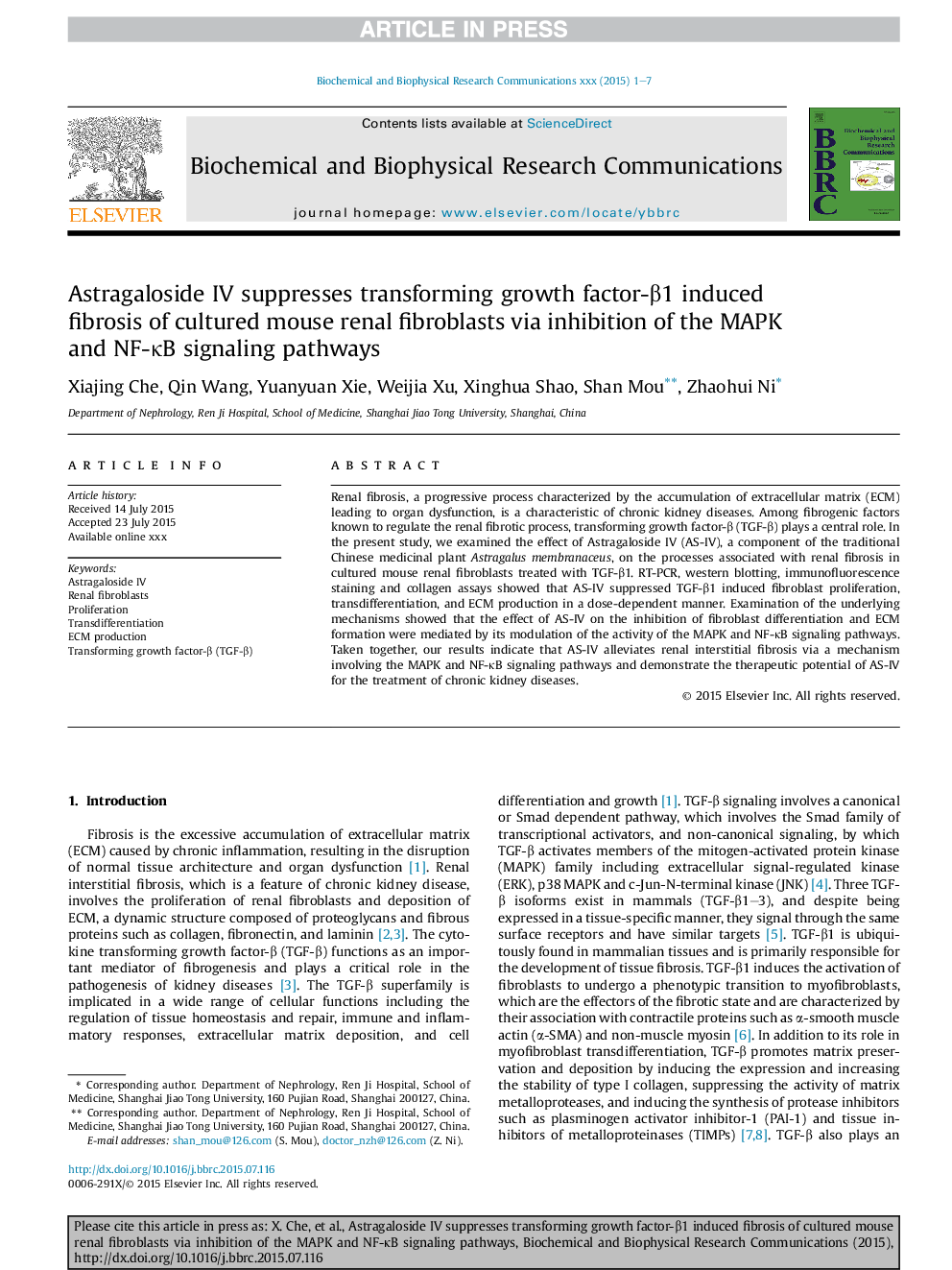| Article ID | Journal | Published Year | Pages | File Type |
|---|---|---|---|---|
| 10749938 | Biochemical and Biophysical Research Communications | 2015 | 7 Pages |
Abstract
Renal fibrosis, a progressive process characterized by the accumulation of extracellular matrix (ECM) leading to organ dysfunction, is a characteristic of chronic kidney diseases. Among fibrogenic factors known to regulate the renal fibrotic process, transforming growth factor-β (TGF-β) plays a central role. In the present study, we examined the effect of Astragaloside IV (AS-IV), a component of the traditional Chinese medicinal plant Astragalus membranaceus, on the processes associated with renal fibrosis in cultured mouse renal fibroblasts treated with TGF-β1. RT-PCR, western blotting, immunofluorescence staining and collagen assays showed that AS-IV suppressed TGF-β1 induced fibroblast proliferation, transdifferentiation, and ECM production in a dose-dependent manner. Examination of the underlying mechanisms showed that the effect of AS-IV on the inhibition of fibroblast differentiation and ECM formation were mediated by its modulation of the activity of the MAPK and NF-κB signaling pathways. Taken together, our results indicate that AS-IV alleviates renal interstitial fibrosis via a mechanism involving the MAPK and NF-κB signaling pathways and demonstrate the therapeutic potential of AS-IV for the treatment of chronic kidney diseases.
Keywords
Related Topics
Life Sciences
Biochemistry, Genetics and Molecular Biology
Biochemistry
Authors
Xiajing Che, Qin Wang, Yuanyuan Xie, Weijia Xu, Xinghua Shao, Shan Mou, Zhaohui Ni,
